Enhancing Counting Skills Numbers Worksheets for 6-Year-Olds
6 filtered results
-
From - To
Enhancing Counting Skills Numbers Worksheets for 6-Year-Olds
Our counting skills worksheets for 6-year-olds are designed to make learning numbers fun and engaging! These interactive sheets focus on helping young learners grasp core counting principles through colorful exercises and playful activities. With themes that include counting objects, number sequences, and basic addition, your child will develop a strong foundation in math while enjoying the process. Perfect for home or school use, these worksheets will boost confidence and enhance numeracy skills, making math a delightful journey. Visit our website to access a variety of free printable worksheets tailored specifically for your young math enthusiast!
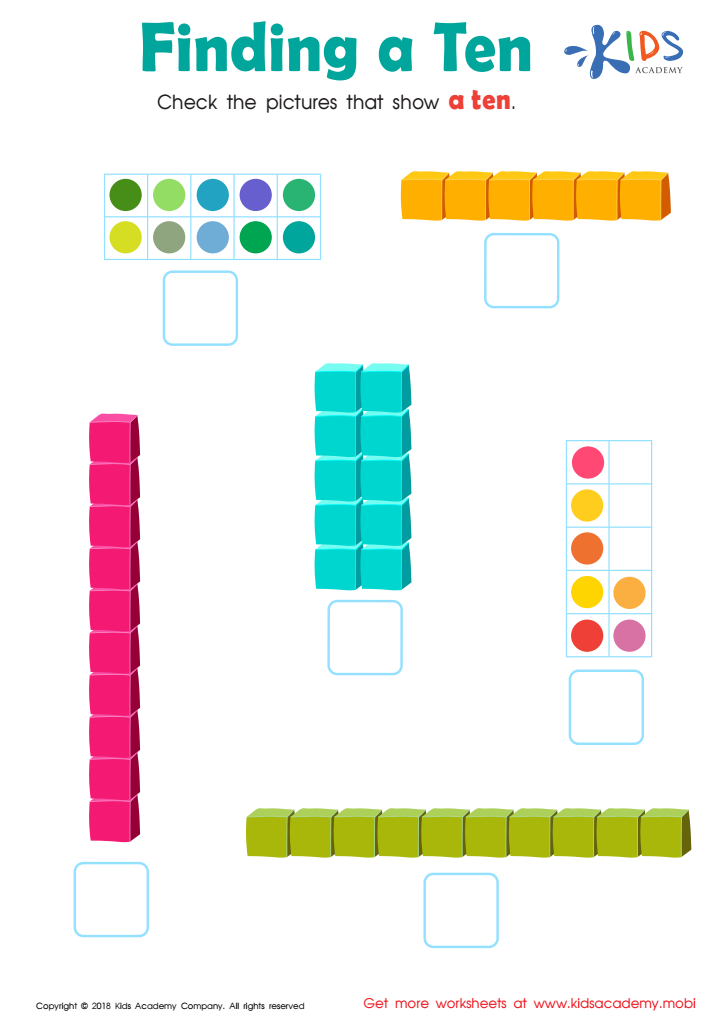

Finding a Ten Worksheet
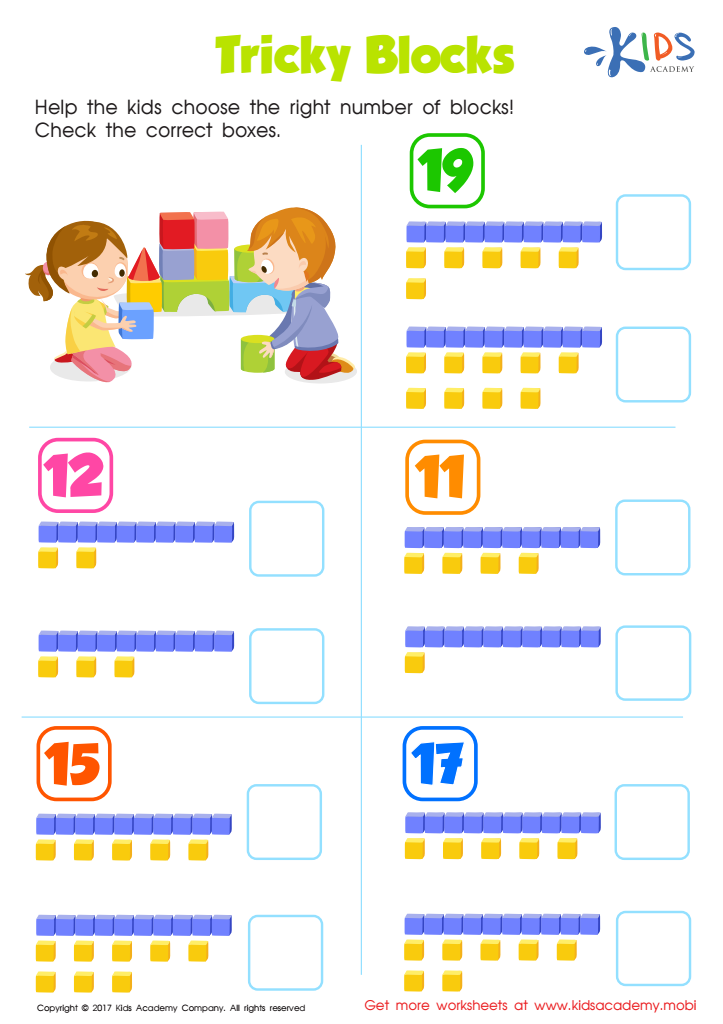

Tricky Blocks Worksheet
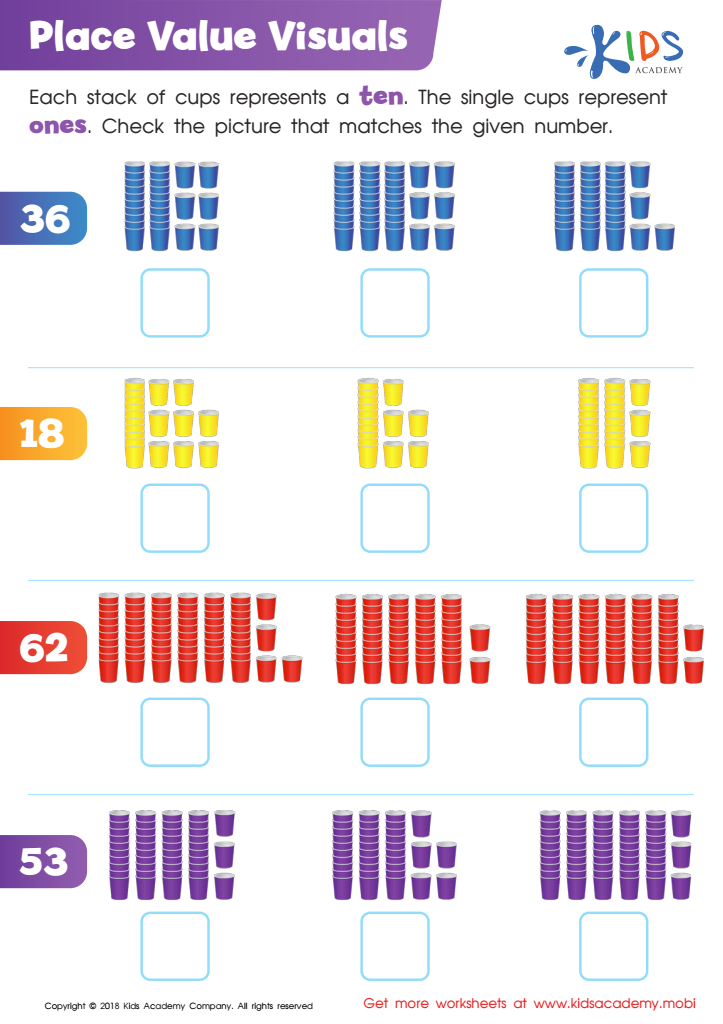

Place Value Visuals Worksheet
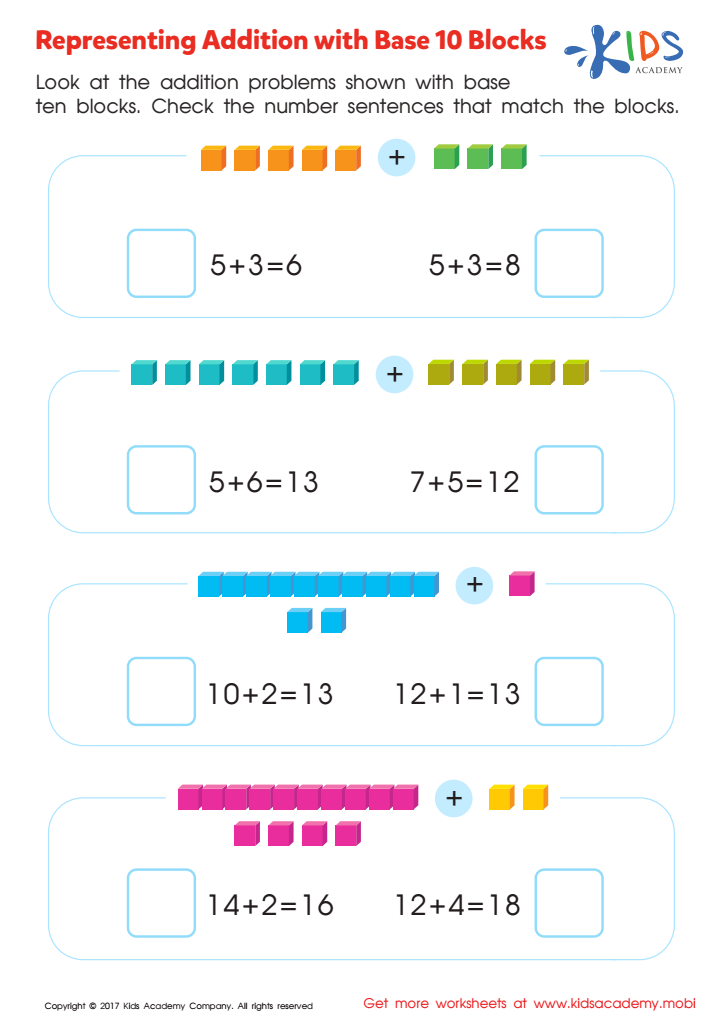

Representing Addition with Base 10 Blocks Worksheet
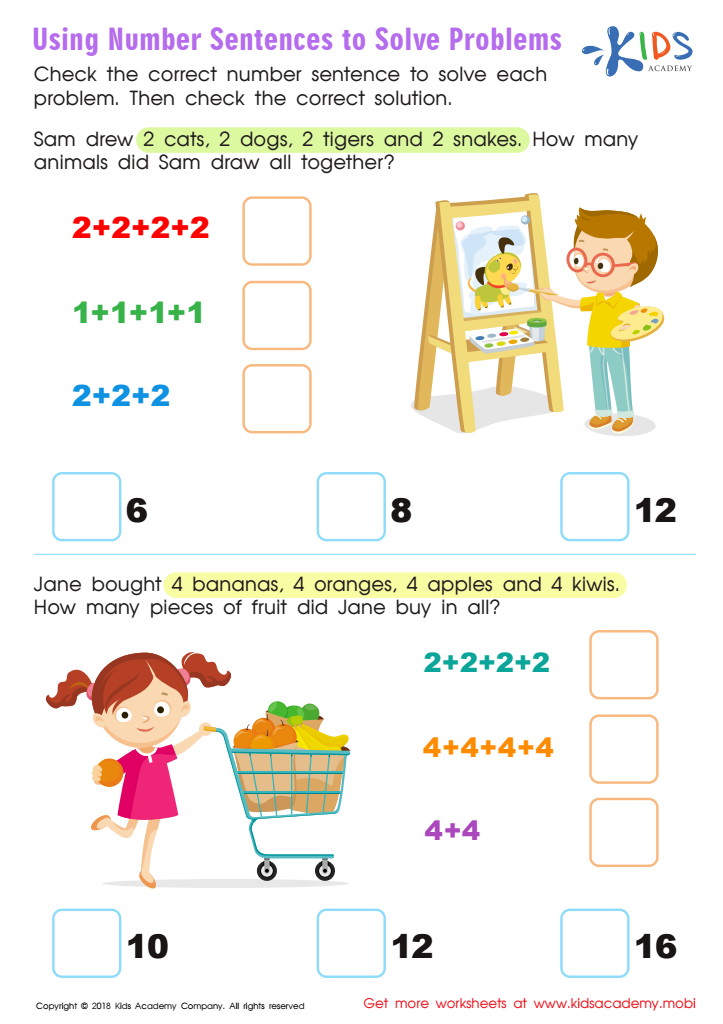

Using Number Sentences to Solve Problems Worksheet
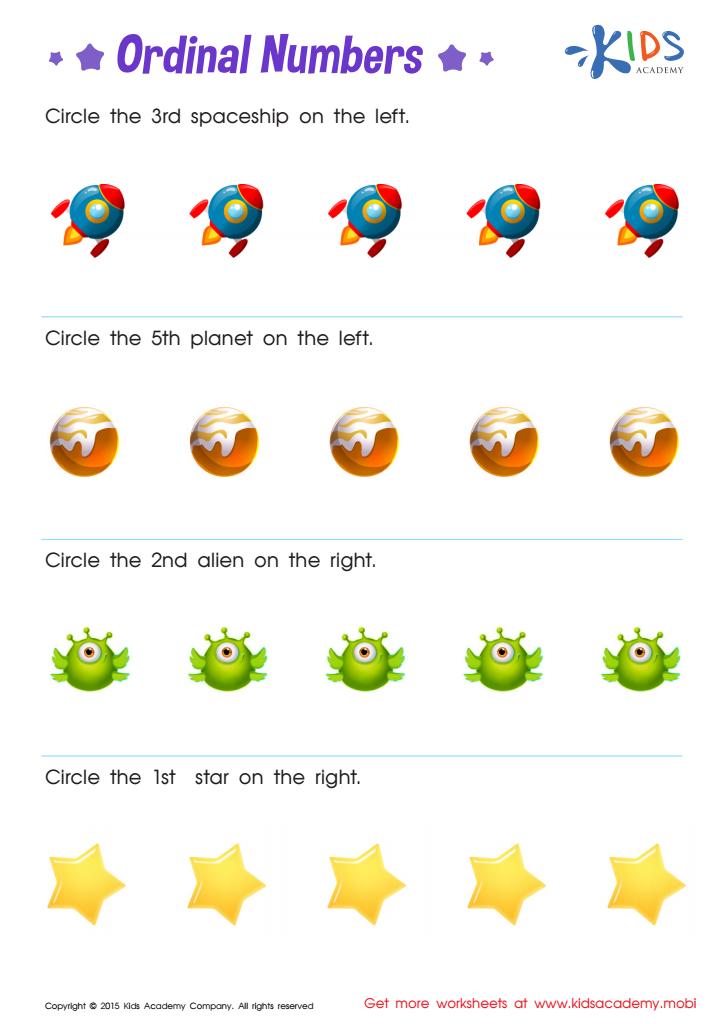

Ordinal Numbers: Space Ordinals Worksheet
Enhancing counting skills in 6-year-olds is crucial for their overall cognitive development and lays a solid foundation for future mathematical learning. At this age, children are enthusiastic learners with a natural curiosity about numbers, patterns, and problem-solving. Fostering strong counting skills helps them build a sense of number order, magnitude, and relationships, which are essential for more advanced arithmetic concepts.
Early proficiency in counting supports improved performance in various areas of education, including science, technology, engineering, and mathematics (STEM). It enhances not only their mathematical capabilities but also their reasoning, critical thinking, and analytical skills. These skills are pivotal for academic success and essential life skills such as managing time, estimating quantities, and even preparing for financial literacy in later stages of life.
Parents and teachers play a key role by incorporating fun and engaging counting activities into daily routines. Using objects, visually appealing tools, and interactive games makes learning enjoyable and effective. Additionally, positive reinforcement, encouragement, and hands-on experiences significantly boost a child's confidence and motivation to learn.
Supporting young learners in mastering counting helps foster a positive attitude toward math, reducing anxiety and building a lifelong appreciation for the subject. Consequently, it creates a robust academic foundation, setting children on a path toward future success and achievement.

 Assign to My Students
Assign to My Students
















